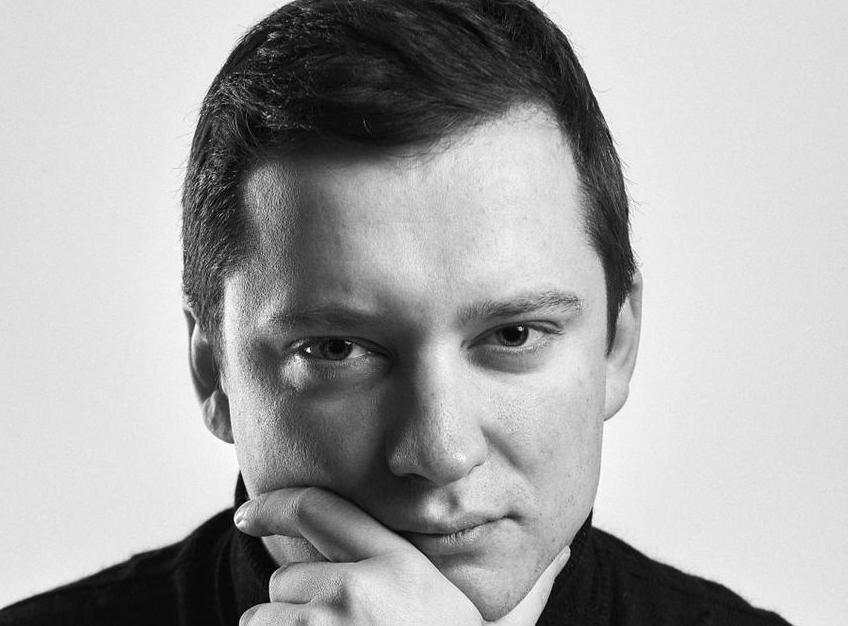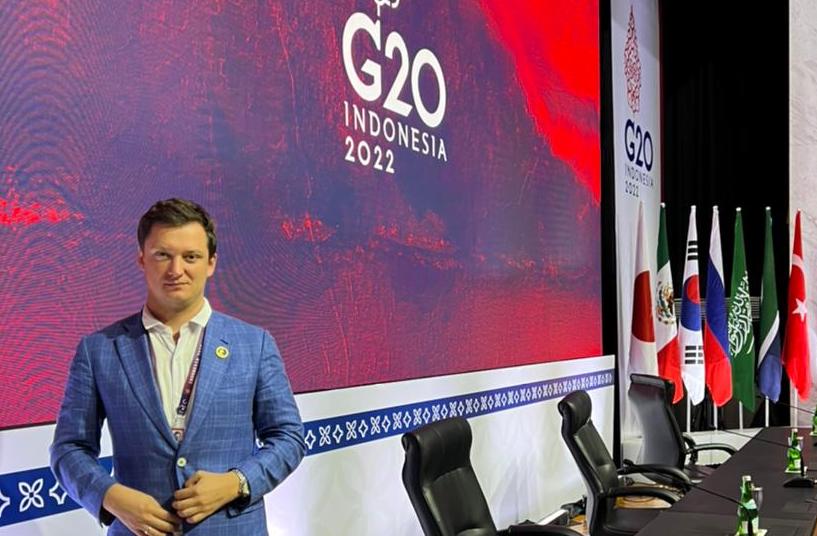
Mykola Volkivskyi is the former advisor to the chairman of the Committee of the Ukrainian Parliament (2014-2021). A political and economic expert, and president of the First International Ukrainian Foundation of Development, Volkivskyi was a participant in the NATO Summit in Madrid and G20 Summit in Bali.

The topic of Ukraine and the Russian-Ukrainian war was planned as the number one item. The fact is that many politicians and diplomats had high hopes for the beginning of a negotiation process between Moscow and Kyiv, which could end the war. Since previous attempts failed, there was hope that—perhaps through the G20 platform or the host country—it would be possible to secure guarantees and start the reconciliation process. Asian countries, as well as African countries, have suffered serious damage from the war and rising food prices.
Everyone understands that the situation will worsen next year, because the market will not be filled with offers from third countries, and, instead, Ukraine is not in a position to adequately engage in agriculture due to the conditions of war: Ukraine will have enough food, but the situation about exports is not clear. First, Russia continues to prevent ships from transporting grain through the Black Sea, and second, given the rise in prices and the dangers of working in Ukraine, the prices for grain and other goods will be higher. In general, all countries were interested in finding ways and mechanisms to minimize losses for themselves. Therefore, we saw that Ukrainian issues were prioritized at the meeting—not because of the desire to draw attention to the war, but because of the real losses that the world is suffering in connection with Russia’s aggression.
In fact, it is difficult to talk about Russia’s participation in the G20 Summit in Indonesia: Russian Foreign Minister Lavrov left the summit very quickly, and no meetings or consultations [with him] were held. Even on a symbolic level, the absence of a joint photo of the leaders at the summit shows that there was no consensus; no one wanted to accept Russia’s position. I believe that as a result of the outbreak of such a long war, Moscow has found many enemies in the faces of the leaders of numerous states who have begun to feel the effects of the war in Europe. What started with the largest increase in energy prices in history has turned into other very concrete things like the weakening of the European or American economies, and many partners that were focused on the Western markets are suffering from this slowdown. Sanctions policies, new complications, etc.—all this plays against Russia and its diplomacy, because it is not a global power and cannot offer anything in exchange.
I felt that the atmosphere at the summit was very intense and yet free of expectations. The countries surely knew that the leaders of Ukraine and Russia would not be at the summit, that the negotiation process would not begin, nor that a joint resolution would be adopted, so the historical Rubicon was not crossed. Of course, even a year ago, Russia was reckoned with and met, negotiations were held, and its representatives were highly received—but now it is a state that finances terrorism. Eighty years ago, Moscow had the opportunity to dictate its terms, but today Russia has fallen to the bottom. This is Putin’s direct responsibility. He has humiliated Russia, and he has condemned it to defeat in the war and to further disintegration.
We can see that China is trying to sort of ignore the issue of the war in exchange for Russia’s support in the matter of annexing Taiwan by force. It cannot be said that this decision is definitive and that Russia is China’s only ally, but against the backdrop of Russia’s war in Ukraine, Russia has no other choice than to be a reliable ally to Beijing. Unfortunately, due to many complications on the topic of Taiwan, Beijing is trying to manipulate geopolitical processes, pointing out their secondary nature. Since the Chinese economy is one of the largest in the world, a constructive position would limit the Russian appetite. We know that some Western electronics get to Russia through China. We also know about the external factors that help the Russians to produce and operate weapons. Kyiv had placed great hopes in Beijing, in that it would become a mediator, a guarantor of security, and be able to exert the necessary pressure on Moscow. Today, China has chosen a completely different role in international politics, having lost its leadership in the eyes of the Western world. We hope for a change in Beijing’s official position on the Russian war, as well as help in ending it. But it is too early to say the main role China will be able to play.
I believe that this was the most serious resolution during the entire war. You remember that the EU introduced sanctions, refused the supply of energy carriers and other things, but all these actions were not enough to decisively and instantly stop Moscow. The recognition of Russia as a state sponsor of terrorism, on the other hand, creates all the prerequisites for another step, which was supposed to be extreme—the government’s initiation of a bilateral break in economic relations. Departments of multinational companies still operate in the territory of Russia, servicing critical sectors. Although the Russians have resorted to the piracy of aircraft, this did not teach businesses that they should not do business with the Russians.
From now on, it can be expected that strategies and separate acts will be adopted at the level of the EU and the national states that will force the limiting of economic activity—especially of the private sector—with this country, which means that Moscow is in for another super-powerful collapse. Can we expect that Russia will suffer greatly from this? Yes, but it will not lead the war to the end. What will Europe do next? I think that a scenario where the EU and the US jointly restrict economic or other activities with third countries that nevertheless cooperate with Russia is a real one. In this case, a blow will be inflicted on weaker countries, which will find themselves in partial isolation. Be that as it may, the country still has tools for its activities.
In fact, Ukraine is already a part of NATO—military equipment and ammunition are supplied to Ukraine, NATO members train soldiers of the armed forces of Ukraine, and colossal military, economic, technological, logistical, and humanitarian support is provided. There is an open exchange of intelligence data, NATO members have located enterprises of the Ukrainian military-industrial complex on their territory. Moreover, everything is leading to the fact that soon—next year—restrictions on the supply of weapons will be lifted, from anti-aircraft systems to military jets.
So, we can ask the question as follows: when should we expect the formal day of Ukraine’s accession to NATO and who is against it? We can openly say that the obstacle to official adoption is the desire not to raise the stakes with Russia to the maximum, because then the question of Article 5 [of the North Atlantic Treaty, committing NATO members to collective defence] will immediately arise. Based on these considerations, formal accession to NATO will not take place until the hostilities are over and Ukraine is provided with the first security guarantees. Since the war has happened, and Ukraine has suffered huge losses, the scenario of neutrality of a post-war Ukraine must be rejected. But even in the case of positive trends, there will still be countries like Hungary or other states with populist governments; in this case, their dissatisfaction will have to be bypassed to achieve security goals. Until then, NATO will remain Ukraine’s largest donor of equipment and resources, which is available only to members. The question cannot be asked: will Ukraine join NATO? One should rather ask: when will this formally happen? I think, based on current trends, formal accession should not be expected before 2024.
